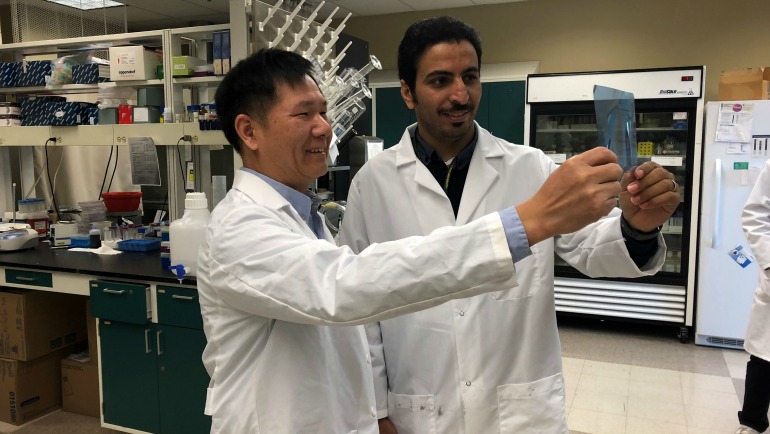
Arsenic occurs naturally in soil and minerals and can enter the air, water and land from wind-blown dust, water runoff and leaching. It may also enter the environment when volcanoes erupt, during mining and smelting of ores, or from coal-fired power plants and incinerators that use coal and certain waste products. Structures built from lumber that was pressure-treated before 2004 may still contain chromated copper arsenate, a chemical preservative that helps protect wood from rot and insects.
Environmental exposure to carcinogenic metal arsenic has long been a major health concern. Long-term exposure to arsenic can cause cancer of the skin, lungs, bladder and kidneys. It can also cause other skin changes such as pigmentation and thickening.
Fei Chen, Ph.D., professor of pharmaceutical science in the Eugene Applebaum College of Pharmacy and Health Sciences, received a $1.31 million grant from the National Institute of Environmental Health Sciences of the National Institutes of Health for the project, “Arsenic-induced MiRNA-199 and MiRNA-214 deplete mitochondrial DNA for the generation of cancer stem-like cells.” This project aims to increase understanding of how and why these microRNAs induce the generation of cancer stem-like cells. The goal is to identify potential target-based strategies of therapy for cancer caused by arsenic.
“We hope our research efforts will unravel the importance of arsenic-induced microRNAs on cancer stem-like cells, and lead to the development of novel therapeutic strategies by using the lung cancer model we have developed in a separate research project,” said Chen. “Our lung cancer model mimics relevant molecular and clinical features of human cancer, and has the potential of identifying strategies of cancer therapy. This could have an enormous impact on patients in the very near future.”
The grant number for this NIH project is ES028335.
Wayne State University is one of the nation’s pre-eminent public research universities in an urban setting. Through its multidisciplinary approach to research and education, and its ongoing collaboration with government, industry and other institutions, the university seeks to enhance economic growth and improve the quality of life in the city of Detroit, state of Michigan and throughout the world. For more information about research at Wayne State University, visit http://www.research.wayne.edu.
